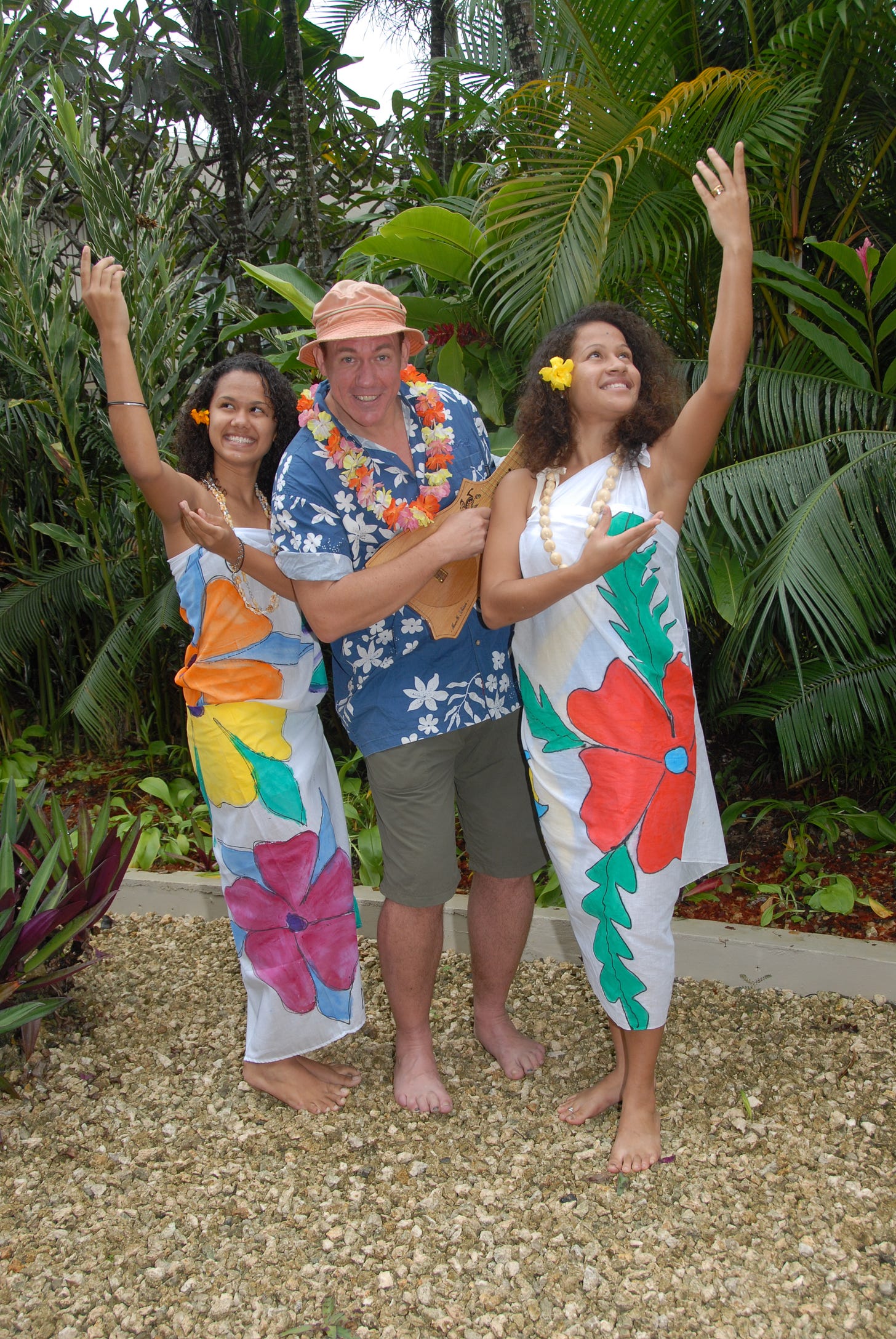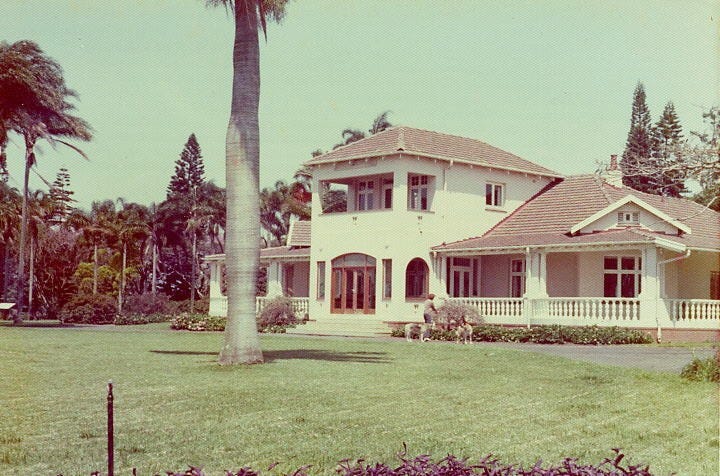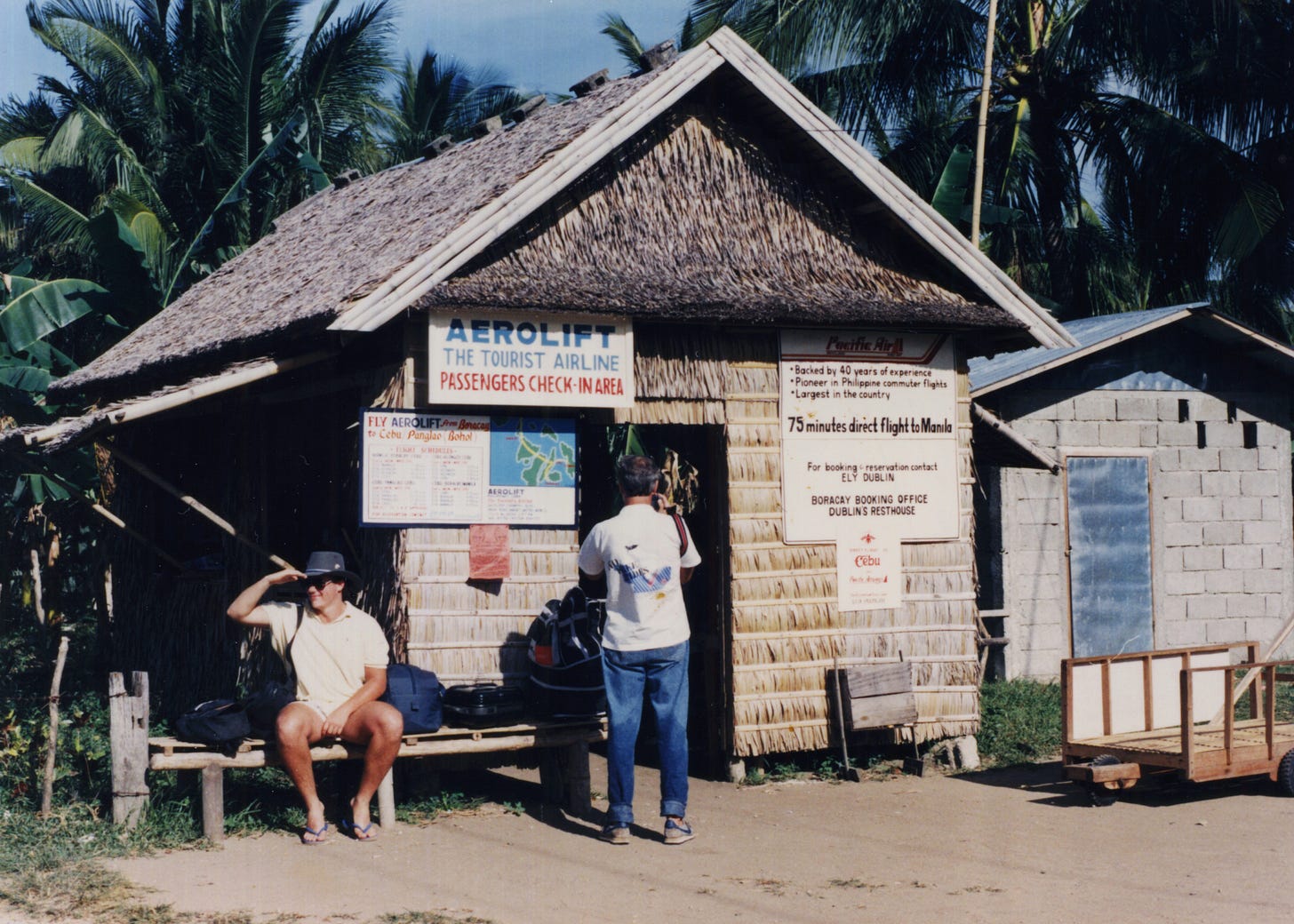Gone Troppo
Meet Stuart Lloyd, a Rhodesian raconteur who recently left his home in Southeast Asia for the rural delights of New South Wales. I asked him the most logical question: why?
Stuart Lloyd is the New South Wales-based, Rhodesian-born talented author of multiple fascinating books including a forthcoming historical tome about a WWII massacre in Singapore, but before recently moving to the pretty town of Orange in the heart of NSW wine country, he spent a quarter century living in and writing about Southeast Asia. I ask Stuart, who I crossed paths with while living in Bangkok, what brought about the move, and what he thinks he’ll most miss about his former home.
Hi Stu, long time no see. How is life in rural Australia?
It’s a complete change of pace from Southeast Asia … I was born on a farm in Rhodesia (now known as Zimbabwe) so always had a subconscious yearning to have the unfettered horizon and quietness, because my head is a noisy enough place! Everyone’s got time for a chat here, so it’s more interactional than transactional.
You said the farm you live on is home to 6 sheep, 2 deer, 2 peacocks and a cattle dog. It's an intriguing menagerie mix, any particular reason why that combination of animals?
You can now add 10 cattle dog pups to that list! No reason other than they were already in situ on the property. My wife, Mam – a Thai – loves animals even more than I do, so she’s in her element.
It sounds like you're getting ready to settle down on the farm, do you think that wanderlust lessens with age?
Not necessarily with age – guys like Joe Cummings, my good motorcycling and musical mate, still travel with relentless energy. But six years of cancer treatment has definitely been a handbrake on me, taking stock and wanting to simplify life to its essentials. My kids both live in Sydney and I now have a 3-year-old grandson. That’s the important stuff.
Why did you move from Southeast Asia after 25 years?
Chiang Mai was losing its charm to me after 11 years living there. Everything used to be so accessible, just 10-15 minutes away. Now it’s double that. So my wife and I were beginning to have the ‘Where next?’ discussions. Vietnam and Portugal were on the shortlist, and I’ve lived in Singapore, Hong Kong and China before. But then I flew to Sydney on 13 March 2020 for a 5-day medical treatment trip, said “See you at the weekend” to my wife, and the borders suddenly closed behind me because of Covid.
We decided to prioritize completion of my cancer treatment (around 3 months more), and by the end of that it was not possible for me to get into Thailand nor my wife into Australia. In the meantime I jumped on a motorbike and ‘discovered’ Orange and felt it was the right place for our next chapter. Thankfully Mam and I were reunited here after 21 long months apart (and she brought with her some of my favourite loud shirts).
We first met in Bangkok, but you've lived in many places.
I’ve lived in 8 countries in all, and travelled to around 75 others. Bangkok was the wrong place for me. Too intense, too noisy, too crowded, too smelly. But amazing in its own way. Chiang Mai was motorcycling heaven, and the northern people softer and gentler. A great base to operate from because I could leave home and be in the airport, checked-in with a boarding ticket in my hand, within just 12 minutes!
A decade in Singapore was perhaps the most rewarding for me personally and professionally. Apart from the necessary hard work, I was sailing every weekend on the East Coast, running with the Hash House Harriers, refereeing first grade rugby, and generally living it large. I spent a year in Suzhou just outside Shanghai, using it as a base for getting to everywhere from Guangzhou to Beijing easily. I loved the history and cosmopolitan feel of Shanghai, which I first travelled to back in 1987, but hated the soullessness of almost everywhere else. Hong Kong, putting politics aside, has become a cooler place since the Handover in 1997. But I’m not really a city person.
What did you most like and dislike about living in the region?
I enjoy the 24-7 kinetic energy of Asia, and the laissez faire spirit. The not-knowing what’s around the corner (although sometimes rather challenging doing 150km on a motorcycle). Oh, and 300 baht an hour massages. Here a Thai massage costs me AUD$85 an hour! Dislikes about the region? The proliferation of low-cost low-class tourism = crowds, to the detriment of the environment and the vibe of many places.

You were raised in Africa, what was your childhood like?
I’d say I was lucky enough to enjoy the last of the idyllic African childhoods. An absolute paradise for me in those days, with a playground in the fields as far as the eye could see. No - further! And too young to be aware of the political storms brewing in Rhodesia and South Africa. Summer was beaches. Winter was rugby and tennis. We lived in a Gone With the Wind-style mansion, with a sauna, tennis court, and pool among rolling sugar-cane fields because dad was a big player in the agricultural field. We left for Australia when I was around 15 or 16. I’ll write a memoir on that one day.
Would you ever consider returning to live in the continent?
Africa is in my blood – I love African music, especially African jazz and so much else – but I don’t have much empathy with it anymore. I took my kids there 10 years ago to show them where I grew up and some awe-inspiring sights like Victoria Falls, where a curry lunch for four cost me 130,000,000 Zimbabwe dollars and I had to pay in four different currencies (and that was before serious inflation set in!).
You're a fourth generation Rhodesian, which obviously brings you great pride, but how does it feel to be from a country that no longer exists? Do you still have family there?
Our family dates back to 1823 in South Africa, and the 1890 pioneer column which established Rhodesia, on mum and dad’s side of the family. Yes, they were great adventurers. My great-grandfather Henry Lloyd amassed two goldmines, a hotel, and a brewery in Rhodesia, then lost the lot playing cards. All we have from that is a battered tin mug saying ‘Lloyd’s Lager’. On mum’s side, trooper George Seymour returned to South Africa and a few short years later was one of seven officers who rode in with Kitchener to relieve the Siege of Mafeking (a pivotal moment in the Boer War). Our last relatives left Zimbabwe for the UK as economic refugees, others got hounded off their farms at gunpoint. We still have a few relatives in South Africa.
Let's turn to your writing – how did you get your start?
I found an advertising agency job straight out of school (I later did a Psychology / Mass Comms degree). Was a copywriter then creative director for some international big name agencies for 13 years. Then I set up my own agency in Singapore, sold out to a multinational, and set about being ‘one man and a typewriter against the world.’
Do you remember the first thing you were paid to write?
It was in advertising, a shitty ad selling fridges for Big W, for which I did something like 71 draft headlines! In regards to travel writing, my first piece was for a travel mag in Singapore on space travel (in 1999), encouraged by my great buddy and publisher, Andrew Yeo. The satisfaction of getting my first byline, with a cheque attached, was like a drug hit. Who knew that would lead to a 3,500 word commission from National Geographic Traveler on the Trans-Siberian railway within just a few short years?
I then spent the next 10 years working as a travel writer, during which time I also published six books. They were busy but fun times! That period included hundreds of magazine features, stories for in-flight mags, and newspapers such as South China Morning Post, the Australian, and Sydney Morning Herald. And some guide book stuff. Chiang Mai 101, for example. That was when I first met you, I believe [Simon - that’s right, in the old wooden house on Soi Tonson that served as the headquarters of Talisman].
What books do you most like to read in your own time?
I’m a voracious reader – around 50 books a year. I love rock ‘n roll and sports (auto) biographies especially. Recently passed on my copy of Dave Grohl’s The Storyteller to my daughter who just graduated uni, and said: ‘Always remember, your dad gave you life lessons from a punk rock drummer.’ No-one ever got successful without hard work. End of. I also read too much military history. Best of recent crop The Odyssey of Echo Company by Doug Stanton about the 1968 Tet offensive. Gripping, active, present-tense writing which made me weep with envy - or possibly even professional jealousy.
Your next book is about a harrowing topic, a massacre in WWII-era Singapore. What drew you to tell this story?
The Alexandra Hospital Massacres of February 1942 (exactly 80 years ago now) is a morbid fascination I cannot fully explain. I was interviewing Gunner Dick Lee for another book, and he was talking about this Singapore massacre which he survived. How humbling to speak with a real hero! And I thought, bloody hell, game on. So it was a rabbit-hole which I spent the next 14 years exploring because I had to solve the mystery of whodunnit? Which I’ve finally done. But there are so many side-stories, conspiracy theories, a $3 million corruption scandal, along with delightful colonial eccentricity that balance up the emotional spectrum in A Bleeding Slaughterhouse.
You mention you might turn to fiction, any bubbling ideas?
Yes, the voices in my head grow louder each day. Wilbur Smith went to the same boarding school as I did I South Africa. I loved his descriptive research-based style. My first dabble will be an unlikely romance set in Singapore during WWII because rule number one is always ‘write about what you know’. But ongoing, I really like gritty urban stuff. Slightly or seriously flawed characters. Seeing the world through the lens of psychology, my view is that we are all just holding it together most of the time, and many normal functioning folks in our community are just a hair’s breadth from totally losing their shit at any given moment. What happens when they do?
For anyone thinking about following in your footsteps and becoming a writer, what advice would you give to them?
Read. And write. Every day. Aim for just 200 lousy words. Sit down, and by the time you know it, you’ve knocked off 1000 or even 2000 words in a session. That way you can write a full-length book in a few months.
Last but not least, what’s been your best trip and why?
Costa Rica. It’s New Zealand smothered in chilli sauce. I wrote about it in my book Gone Troppo. Incredible primary jungle treks, exotic flora and fauna, pristine beaches, sizzling nightlife, natural adventure at every turn, set to a hip-swiveling samba beat. My school buddy Cam and I had the time of our lives there. Never laughed so much!
Stuart’s latest book A Bleeding Slaughterhouse is out now.











Sometimes it's really miraculous how much you actually can do within the limited time we have.
Thanks for this entertaining interview!